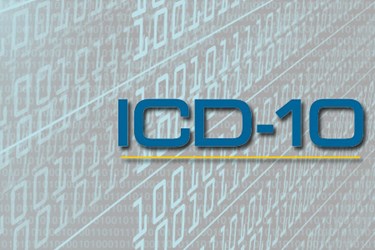3 Tips To Prepare For ICD-10

By Katie Wike, contributing writer

The ICD-10 deadline is coming up quickly; are you ready? Here are three steps to prepare you for the transition.
A WEDI survey found a surprising lack of readiness for ICD-10. The group reported, “Based on the survey results, it appears the delay has had a negative impact on some readiness activities. Uncertainty over further delays was listed as a top obstacle across all industry segments. Some tasks have slipped into 2015, particularly those related to testing. It appears clear that while the delay provided more time for the transition to ICD-10, many organizations did not take full advantage of this time.”
So how do you make sure that you’re prepared for the big day? HIMSS has a few tips to keep your staff from stressing out over ICD-10.
- “Understand the clinical documentation impact of ICD-10.” As EHR Intelligence further explains, identify the top medical conditions and make sure you understand the codes associated with them. “Hospital coders and claim submitters need to know the key documentation information to ensure they select the right ICD-10 code. Processes surrounding data capture, documentation, and recording will need to be updated to correspond with the new coding set.”
- “Make sure that your systems are updated for ICD-10 capability.” If a vendor handles your updates, make sure they’ve installed the latest version of their software. If you handle updates internally, make sure your IT team has installed all the relevant updates.
- “Do some internal and (if time allows) external partner testing.” Test your ICD-10 procedures and make sure you test dummy claims in order to adjust any issues that may arise before October 1. “It’s vital to follow these steps and prepare for the ICD-10 conversion before time runs out.”
ICD-10 is coming whether you are prepared or not, as Stanley Nachimson, Principal, Nachimson Advisors LLC explains. “ICD-10 is real, and it is going to happen on Oct. 1, 2015. While there have been numerous delays of this major change to diagnosis and inpatient hospital coding, we are quickly approaching the day of reckoning,” he says. “All providers must be ready to use ICD-10 coding on their claims and other transactions with health plans for services provided on and after Oct. 1, 2015; or else their claims will not be paid.”
